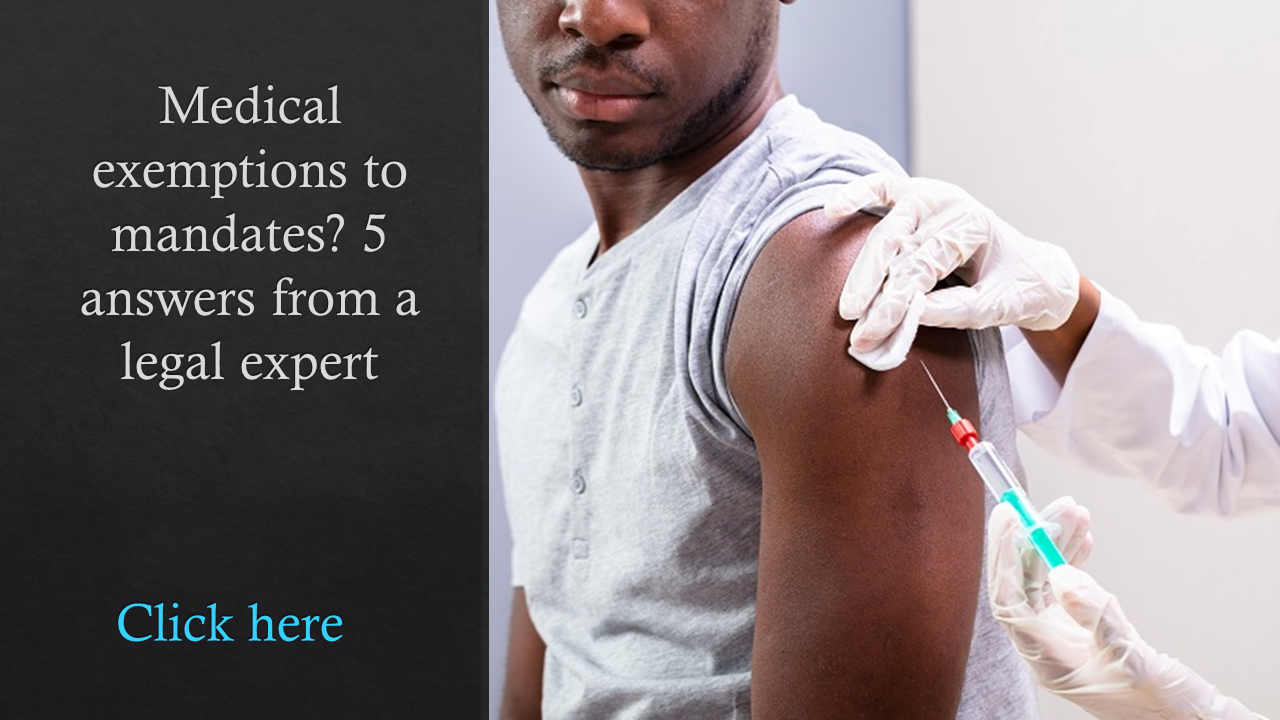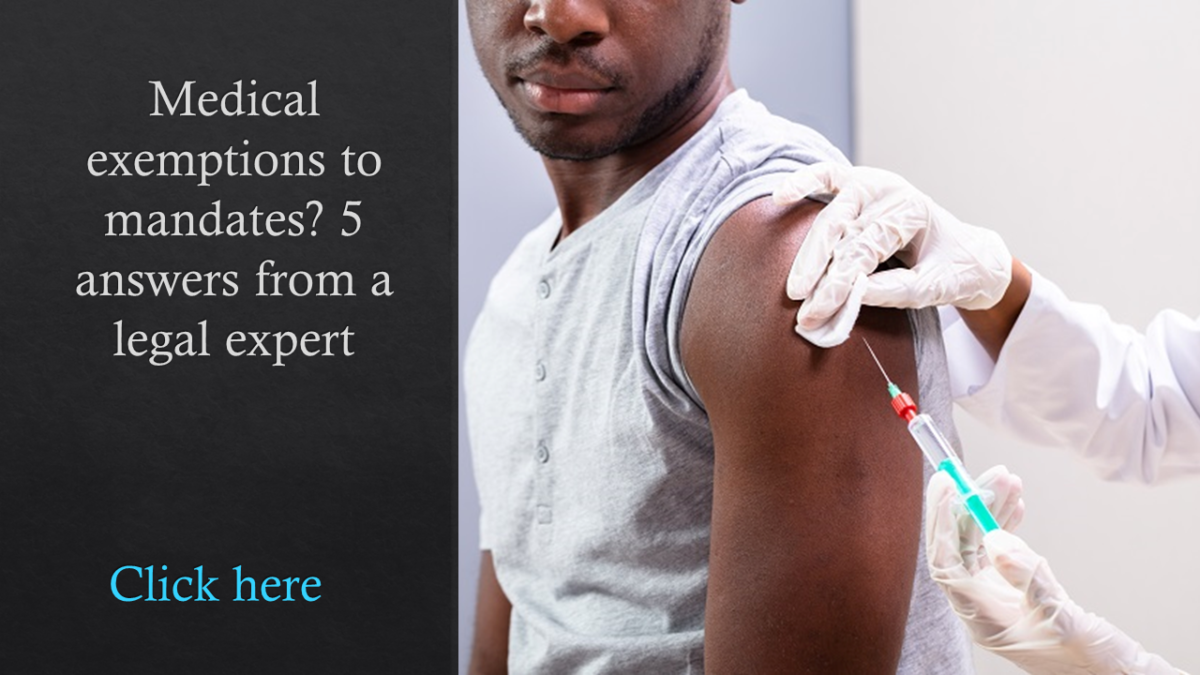After months of uncertainty, many employers will soon have an answer as to whether or not they need to proceed with COVID-19 vaccination mandates or testing requirements for their employees.
The U.S. Supreme Court on Friday will hear oral arguments regarding two of the Biden administration’s COVID-19 workplace policies: the Occupational Safety and Health Administration’s emergency temporary standard (ETS)—which requires employers with 100 or more employees to implement a COVID-19 vaccination requirement for their workers and to offer a weekly testing alternative for those who refuse or are unable to receive a vaccine—and the Centers for Medicare and Medicaid Services rule, which requires vaccination of all healthcare workers at CMS-covered facilities throughout the United States.
The Supreme Court is expected to decide whether to block President Biden’s vaccine mandates for larger employers and healthcare workers or allow the rules to proceed.
Here are five things to know ahead of the case.
The ruling has significant implications for both employees and employers. If the OSHA requirements are upheld, an estimated 80 million workers will be affected. And the CMS requirement for healthcare workers could affect more than 10 million other workers. “There’s a tremendous amount at stake for employers with more than 100 employees if the OSHA rule is upheld,” says David Gordon, an employment litigation partner at law firm Mitchell Silberberg & Knupp LLP. “On a practical level, big employers will need to ensure they have a mechanism in place for verifying compliance.”
The case follows months of legal wrangling. Since President Biden announced the COVID vaccine mandates in September, there has been mixed reactions. Opponents say mandates are the only way to ensure millions more get vaccinated and help end the pandemic. Some business groups also lauded the mandates, saying it takes the decision of whether to mandate vaccines for employees out of their hands. Opponents, though, argue not only does the mandate place too much administrative burden on employers, but it’s an overstretch of power to force vaccination.
Shortly after the administration’s announcement, the 5th U.S. Circuit Court of Appeals in November put the policy for large companies on hold nationwide. But weeks later, the 6th Circuit reinstated it after hearing a consolidated case that linked all the related challenges. The Supreme Court agreed to consider the vaccine mandate for large companies after several groups appealed the 6th Circuit’s decision.
A decision is expected relatively soon. Legal experts say a decision from the court is likely to come in relatively short order. That’s because deadlines for the rule are fast approaching: Biden’s administration has said it will start requiring compliance with vaccination policy on Jan. 10, though companies would have until Feb. 9 to set up testing programs. In the states where the regulation has not been blocked, workers are required to be fully vaccinated by Feb. 28.
The Omicron variant, which is surging nationwide, also is complicating COVID strategies and prompting more companies and health officials to act quickly to protect more Americans.
Employers should be prepared to move ahead on the rule—and fast. Experts have repeatedly told HRE that despite the uncertainty of the mandate, employers would be wise to move forward with finalizing vaccine and testing policies and toward implementation as it’s a large administrative job.

Melissa Gonzalez Boyce
“If it is upheld, you don’t want to be behind the eight ball. You want to make sure you have procedures in place,” Melissa Gonzalez Boyce, an attorney and legal editor at XpertHR, recently told HRE. “The ETS has so many compliance obligations that are so intricate, so arduous on the employer, that it’s not something an employer will be able to pick up.”
Regardless of the final ruling, employer vaccination efforts will likely grow. Although the uncertainty over the vaccine mandate has put many organizations in wait-and-see mode, scores of employers said they were moving ahead with vaccination requirements, regardless of the future of the ETS. Starbucks, for instance, recently announced its workers must be fully vaccinated or undergo weekly testing to comply with new federal mandates.
Employer action on vaccines has only grown in recent weeks in light of Omicron, which is driving a record number of COVID infections and wreaking havoc on workplaces. Experts say employers are even looking at requiring not just the first two COVID vaccinations, but booster shots as well.
“In the past week, employers are telling us that they will require their employees to get booster shots because employers do recognize that there’s an added layer of protection,” says Dr. Neal Mills, chief medical officer for Aon, who works with employers on COVID-19 strategies.
